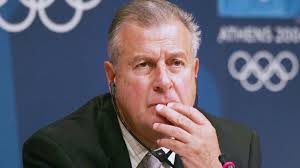By Andrew Warshaw
September 2 – FIFA’s much-touted Reform Task Force convenes for the first time today and tomorrow amid considerable doubt over whether it will finally be able to bring about desperately needed concrete change in the wake of the unprecedented corruption crisis that has engulfed the organisation.
Led by former International Olympic Committee director-general Francois Carrard, the two-day meeting takes place in the Swiss capital of Bern roughly 100 kilometers from FIFA headquarters in Zurich.
The initial task of the 15-member body, which mainly comprises representatives of FIFA’s six confederations, will be to formulate some kind of provisional blueprint to present to the executive committee (exco) later this month. The subsequent key date will be December’s exco meeting which will set the agenda for February’s extraordinary congress when Blatter’s successor is elected and where the reform package is due to be voted on. Even then, however, Carrard’s work may end up being redundant if whoever takes over from Blatter has a different view to the veteran Swiss about what needs to change.
Carrard has already come under fire for describing soccer in the United States, where the FBI investigation into widespread money-laundering and racketeering stretching back two generations partially prompted Blatter’s decision to step down, as “just an ethnic sport for girls in schools”. Hardly ideal timing in the build-up to the body’s first meeting.
Hardly ideal either is the fact that both African representatives on Carrard’s panel are current members of FIFA’s exco, viewed by many as being totally counter-productive. It is also being rumoured that at least one Task Force member will not be attending the first session. No wonder those seeking radical reform are sceptical about progress given past efforts at reform initiatives.
There is also considerable confusion as to the actual strategy in place, who is making the decisions and especially the role of Domenico Scala, independent head of FIFA’s audit and compliance committee.
In July, Scala came up with a nine-point reform plan which was presented to the exco. But instead of agreeing there and then with Scala’s plan, FIFA responded by setting up the new reform committee which could be construed as moving backwards.
Scala is not a member of Carrard’s body even though he is supposed to be overseeing the entire reform process. Nor is it known whether he will be on the advisory board (another level of bureaucracy) that Carrard wants to appoint to help him with his work.
There are, however, a number of proposals for Carrard and his team to get their teeth into straight away. First among these is reducing the power of the exco and replacing it with a different management structure that would include a governing council elected by FIFA’s full Congress. How this will go down with the confederations remains to be seen since it is they who traditionally nominate exco members.
Then there is the long-debated idea of introducing of term limits for senior FIFA officials, not just the president, who would be limited to a maximum of three four-year-terms. FIFA would expect its national associations to follow suit and would only allow those who do so to have major roles on its various internal bodies.
Disclosure of salaries is another key idea while the women’s game is determined not to be left behind and has called for a target of 30% of women’s participation in FIFA’s decision-making heirarchy.
FIFA’s Task Force for Women’s Football says female participation must be a priority as the new reform body gets to grips with improving the crisis-hit organisation’s image and Carrard is believed to have this on the table in Bern.
“Given that FIFA’s Executive Committee was entirely male for over 100 years, and many football bodies still remain so, gender diversity must now be an urgent priority to improve decision-making and build a better FIFA,” said Moya Dodd, who chairs the women’s Task Force group.
“When the women’s football community gathered at FIFA’s Symposium in Canada recently, the calls to action were loud and clear. We want an inclusive FIFA, with a 30% participation target in committees and senior roles, and non-discriminatory resourcing of the women’s game in fair financial proportion to our participation and our potential. These asks have been passed up to the Reform committee, and we are hopeful of favourable consideration in the reform process.”
Contact the writer of this story at moc.l1746778350labto1746778350ofdlr1746778350owedi1746778350sni@w1746778350ahsra1746778350w.wer1746778350dna1746778350

